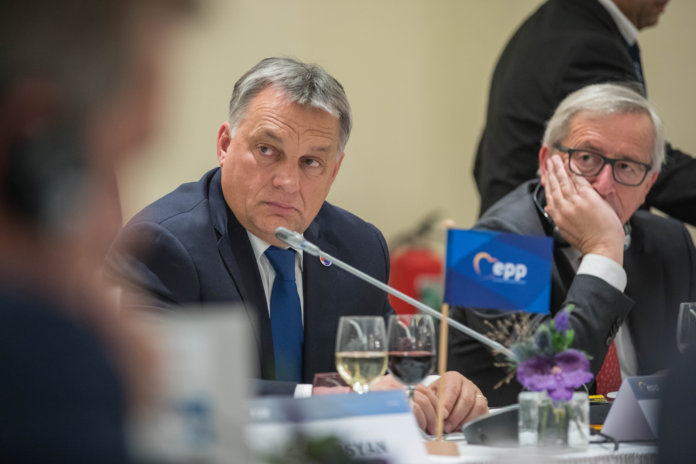By Seth Gellman
Source: European People’s Party – Flickr
Viktor Orban is no stranger to controversy. The Hungarian clashed with the EU multiple times, notably sending them a bill for a fence he created to keep immigrants out of Hungary. His relationship with the transnational EPP, or European People’s Party, is nothing to brag of either. His Fidesz political party has been at arms with the EU for years.
Orban criticized and mocked EPP commissioner Jean-Claude Juncker, calling him a puppet of Hungarian-born philanthropist George Soros. The head of Fidesz delegation to the EPP, Tamas Deutsch, compared EPP head Manfred Weber to the Gestapo.
The EPP recently voted to change their rules, and make it significantly easier to vote to expel Fidesz. Orban described the situation as “anti-democratic”, expressing his discontent with the decision. He then announced his withdrawal from the group. The bloc will still remain the largest in the European Parliament. The bloc’s members also include Angela Merkel’s CDU.
Many of the EPP’s critics have stated that the separation was long overdue. They accused the EEP of turning a blind eye to the rolling back of human rights and democracy.
The separation hurts both of them. Fidesz used the EPP as a platform to bring attention to Hungary and push their political agenda while the EPP enjoyed the extra 12 seats in the European Parliament.
As Hungary becomes more isolated from the EU and much of Europe, many look to how far Orban will go to separate himself from traditional European establishments. Orban’s critics point to his far-right populism as an unacceptable movement that is willing to ignore human rights, democracy, and the rule of law to get their way. Orban dismissed these criticisms, defending his rule by claiming that he is fighting oppression.

